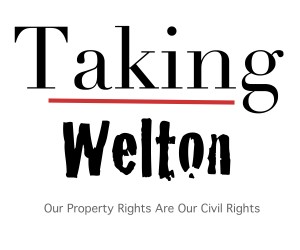Time to Fix Eminent Domain
“After a long fight with the Philadelphia Redevelopment Authority (PRA), the artist last week learned that he can keep his studio in the Mantua section of the city. The fight began back in 2012 when the PRA, citing the city’s eminent domain authority, seized his property and offered him what they considered a fair market value to vacate. Dupree disagreed on that. The PRA claimed, and still claims, that the area is a “food desert” and needed his block so that a private developer could build a supermarket. Dupree also disagreed. “Nothing could be further from the truth,” he said. “A developer could easily build around my studio or on the vacant block next to me.”
The reasons can be debated. But there’s one thing that requires no debate: The eminent domain process has to change. Eminent domain is defined as: “The power of the government to take private property and convert it into public use. The Fifth Amendment provides that the government may only exercise this power if they provide just compensation to the property owners.
Dupree has not been the only person fighting this rule. As I write this, a New York state assemblyman is trying to use eminent domain as a means for the state to take over a failed community center in Brooklyn, with the reported intent of scaring the building’s owners to negotiate a deal for the property at a lower price. An Idaho woman’s property is in danger of being seized by the state for the purpose of a wastewater treatment facility. In California there is now a proposal “…from a member of San Francisco’s Board of Supervisors (that) would use eminent domain to take over loans on a property with a market value below the mortgage amount. A lawmaker says it would help minorities in the city of about 837,000, while some officials see the move increasing borrowing costs and discouraging investors.” A District of Columbia councilman is campaigning to seize the land currently used by a private trash transfer station for the city’s use.
These are valid issues. But these are issues that should not be decided upon by just a government office. This is private property, not government property. If Dupree’s experience has taught us anything it’s that the system has to change. Eminent domain issues should be decided upon by a council of both public and private members of their local communities. In some cases, depending on the size or importance, the issue should be put up for a vote.”
Marks, Gene. Philly Magazine December 16 2014.
*
